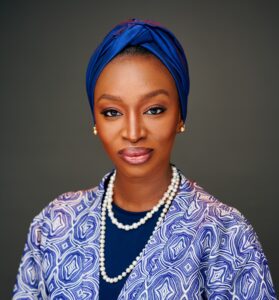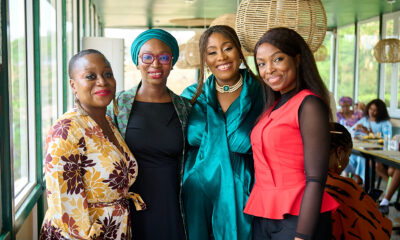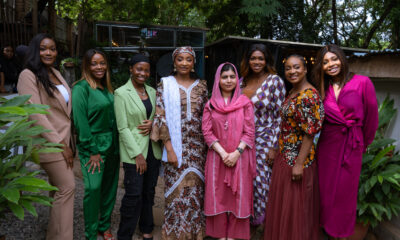Inspired
Malala Fund Appoints Nabila Aguele As Its Chief Executive in Nigeria

Malala Fund has appointed Nabila Aguele as its Chief Executive in Nigeria. A lawyer, public policy advisor, and advocate for gender equality, Nabila’s work centres on sustainable development, particularly in human capital and public financial management within the public sector.
A global citizen, Nabila grew up in Nigeria, England, Qatar, and Canada. She holds a B.Sc. from the University of Toronto, a Juris Doctor from the American University Washington College of Law, and an MBA from INSEAD, where she was Valedictorian.
She has been instrumental in promoting gender-responsive fiscal policies and helped establish Nigeria’s gender-responsive budget. With nearly two decades of experience, Nabila will spearhead the Malala Fund’s mission to improve girls’ access to education across the country. Joining her on the leadership team is Gayatri Patel, who will take on the role of Chief of External Affairs.
“Our organisation is proud to celebrate a decade of impact this year — reflecting on learnings and using them to define our new strategy,“ says Lena Alfi, Chief Executive Officer at Malala Fund. “Welcoming Nabila and Gayatri to the team is a key step toward that future. These women are accomplished, innovative leaders and passionate advocates who are sure to strategically guide our team’s work to improve outcomes for girls’ access to education around the world.”
In her role, Nabila will oversee the organisation’s advocacy and grantmaking initiatives, with a focus on education policies and programs that target regions in Nigeria where girls face the greatest barriers to schooling. A lawyer and public policy expert with a deep commitment to gender equality, Nabila has long been involved in shaping policies aimed at creating sustainable social change. Previously, she served as Special Adviser to Nigeria’s Minister of Finance, where she advocated for gender-responsive fiscal policies and budgets.
“I am thrilled to join this team, connect with our partners and support the next generation of girls in Nigeria,” said Nabila. “To help girls learn, we are advocating for the creation and implementation of key education policies and supporting partner organisations working in states where girls face the greatest challenges to going to school.”





















